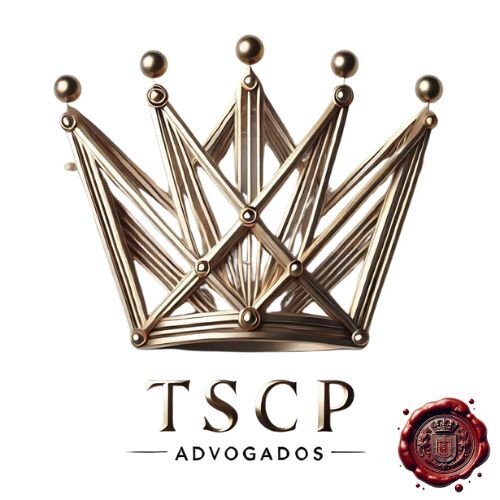Best Guardianship Lawyers in Porto
Share your needs with us, get contacted by law firms.
Free. Takes 2 min.
List of the best lawyers in Porto, Portugal
About Guardianship Law in Porto, Portugal
Guardianship, known in Portuguese as "tutela" or "curatela," is a legal mechanism designed to protect and support individuals who are unable to manage their personal or financial affairs due to age, incapacity, or physical or mental limitations. In Porto, Portugal, guardianship most commonly applies to minors whose parents are unavailable or to adults who, due to illness or disability, are deemed legally incapable of handling their affairs independently. The main objective is to ensure the well-being, protection, and proper administration of the rights and assets of the person under guardianship.
Why You May Need a Lawyer
Guardianship proceedings can be complex and emotionally challenging, often involving family members, medical assessments, and legal institutions. You may need a lawyer in situations such as:
- When seeking to establish guardianship for a child due to the death, incapacity, or absence of parents.
- When a relative or elderly family member becomes unable to manage their own affairs due to illness, dementia, or disability.
- To resolve disputes among family members regarding who should act as a guardian.
- If you are appointed as a guardian and require advice on fulfilling your legal duties and responsibilities.
- To challenge or end a guardianship arrangement that you believe is no longer necessary or appropriate.
- When navigating issues involving the financial or property management of the person under guardianship.
An experienced lawyer can explain your rights, prepare documentation, represent you in court, and help ensure the guardianship process is conducted in the best interests of the protected individual.
Local Laws Overview
Guardianship laws in Porto are governed by the Portuguese Civil Code and the Código do Processo Civil. Key aspects include:
- The establishment of guardianship for minors when both parents are deceased, declared absent, or deemed unfit by the court.
- The appointment of curators for adults considered legally incapacitated due to mental illness, disability, or other severe limitations.
- Court involvement is required in all guardianship cases, usually initiated in the local family and minors court (Tribunal de Família e Menores).
- The selection of a guardian prioritizes the best interests of the person needing protection, often favoring close family members unless a conflict of interest exists.
- Guardians have a duty to act in good faith and are required to provide annual reports detailing the personal and financial management of the person under their care.
- Court supervision ensures ongoing oversight, and failure to comply with obligations can lead to removal or legal consequences for the guardian.
- Guardianship can be reviewed or terminated if circumstances change, such as recovery of capacity or reaching adulthood.
Frequently Asked Questions
What is the difference between tutela and curatela in Portugal?
In Portugal, tutela generally refers to guardianship of minors, while curatela is a protective measure for adults who cannot manage their own affairs due to incapacity.
Who can be appointed as a guardian in Porto?
Family members, such as grandparents, siblings, or other close relatives, are often preferred for guardianship. However, the court may appoint a non-family member or even an institution if it is in the best interest of the individual.
How do I initiate a guardianship process in Porto?
To initiate guardianship proceedings, you must file an application at the local family and minors court. Supporting documentation, such as evidence of incapacity or the minor's circumstances, will be required.
What are the duties of a guardian?
Guardians manage the daily life, property, and finances of the person under guardianship, making decisions in their best interests and ensuring their health, education, and overall welfare.
Do guardians need to file reports with the court?
Yes. Guardians are typically required to submit regular reports to the court, detailing their management of the person’s finances and personal well-being.
Can a guardianship be challenged or changed?
Yes. Interested parties can apply to the court to modify or terminate guardianship if circumstances change or if the current arrangement is not serving the individual's best interests.
What happens when a minor under guardianship turns 18?
When a minor reaches the age of majority, guardianship automatically ends unless the individual is found to be legally incapacitated and curatela is required.
Are there legal costs associated with guardianship proceedings?
Yes. Court fees and potential attorney costs are involved. However, legal aid may be available for those with limited financial resources.
Can a guardian make all decisions for the individual?
While guardians have broad authority, some decisions, such as selling property or choosing a place of residence, may require prior court approval.
Is it possible to appoint a guardian in advance?
Portuguese law allows individuals to express preferences for future guardianship arrangements in legal documents, although the court will always assess the best interest of the person at the time of incapacity.
Additional Resources
For more information, you may consider contacting the following resources and organizations:
- Tribunal de Família e Menores do Porto - Handles guardianship proceedings for families and minors in Porto.
- Instituto da Segurança Social - Offers information and support for families and individuals affected by incapacity or guardianship issues.
- Ordem dos Advogados (Portuguese Bar Association) - Can help you find qualified lawyers experienced in guardianship law.
- Centro de Apoio à Deficiência - Provides resources and support related to disability and legal capacity.
- Junta de Freguesia (Parish Council) - Can guide you on local administrative support and resources available for guardianship matters.
Next Steps
If you believe you need legal assistance regarding guardianship in Porto, it is recommended to take these steps:
- Gather all relevant documents, including identification, medical records, and any existing legal documents relating to the individual in need of protection.
- Schedule a consultation with a lawyer who specializes in family law and guardianship matters in Porto.
- Prepare a clear account of the situation, listing concerns, the desired outcome, and any other individuals involved.
- Discuss the available legal options and the potential costs involved with your lawyer.
- If necessary, apply for legal aid through the Instituto da Segurança Social or your local parish council.
- Attend all required court hearings and follow the guidance provided by your lawyer and the court throughout the process.
Taking prompt and informed action can help safeguard the well-being of those in need of protection through guardianship in Porto, Portugal.
Lawzana helps you find the best lawyers and law firms in Porto through a curated and pre-screened list of qualified legal professionals. Our platform offers rankings and detailed profiles of attorneys and law firms, allowing you to compare based on practice areas, including Guardianship, experience, and client feedback.
Each profile includes a description of the firm's areas of practice, client reviews, team members and partners, year of establishment, spoken languages, office locations, contact information, social media presence, and any published articles or resources. Most firms on our platform speak English and are experienced in both local and international legal matters.
Get a quote from top-rated law firms in Porto, Portugal — quickly, securely, and without unnecessary hassle.
Disclaimer:
The information provided on this page is for general informational purposes only and does not constitute legal advice. While we strive to ensure the accuracy and relevance of the content, legal information may change over time, and interpretations of the law can vary. You should always consult with a qualified legal professional for advice specific to your situation.
We disclaim all liability for actions taken or not taken based on the content of this page. If you believe any information is incorrect or outdated, please contact us, and we will review and update it where appropriate.









